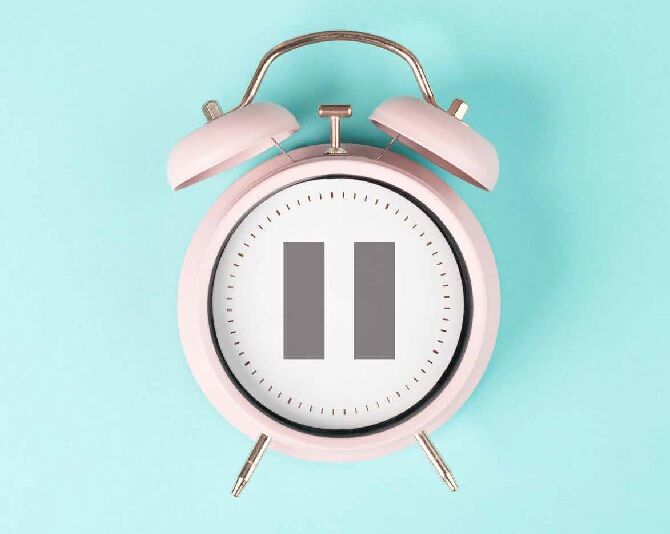Inclusive wellbeing: managing menopause
The impact of menopause on all demographics, plus how to make small adjustments for better workplace support, are in policymakers’ sights. International employers described their approaches to supporting women’s health and the importance of inclusive wellbeing at the CIPD annual conference and exhibition.

This article is taken from the Winter 2023/2024 issue of
Think Global People magazine
Click on the cover to access the digital edition.Last year, the UK government launched its women’s health strategy. This reflects both the importance of retaining female talent in the workforce and the intention of government and policymakers to close the gender health gap. The ten-year plan and appointment of Dame Lesley Regan as Women’s Health Ambassador for England seeks to raise the level of support, awareness and understanding of health conditions specific to women. It includes bias training for medics to improve diagnosis and care.Public awareness – if not yet understanding – of menopause as a life stage has risen in recent years thanks to high-profile women like broadcasters Mariella Frostrup, Kirsty Wark and Davina McCall. Over the past decade, they have used their platforms to share personal experiences and show the relevance of menopause-related issues in workplaces, amplifying the research and advocacy of organisations like the British Menopause Society.The issues span accessing HRT, healthcare and evidence-based advice, challenging the culture of silence, stigma and taboo around women’s reproductive health at work, as well as addressing the isolation of managing symptoms alone when awareness and support systems are lacking.
Related reading from Relocate Global
- How to support menopausal employees: HR guidance for a menopause-friendly workplace
- The role of HR in change management: key issues and priorities
- Wellbeing revolution: Over eight in ten businesses seeing increased employee demand for more work wellbeing benefits
No time to step back
The business case and need for the government’s strategy is clear. From a retention and engagement perspective, women aged 40-60 comprise one of the fastest-growing demographics of the UK workplace. There are 3.5 million women aged over 50 currently active in the labour market.The CIPD, which has long researched and advocated for all aspects of women’s health, reports the significant impact of menopause on women at work. This includes the 53% who felt unable to go into work because of their symptoms. Figures from McKinsey also show that women are leaving leadership positions at a faster rate than men.Government figures further show the wider productivity and inclusion impact. One in four women consider leaving their job because of their menopause symptoms. For another one in four women, the physiological symptoms mean taking long-term sickness absence. Together, this data shows the impact not only on the health, career progression, long-term financial wellbeing and overall happiness of women, but also on the health of the economy in the UK and globally.Linking the health and wellbeing aspect with work, Helen Tomlinson, head of talent (UK & Ireland) at The Adecco Group, was appointed in March to become the UK’s first Menopause Employment Champion under Dame Lesley Regan’s leadership. This voluntary role is tasked with encouraging employers to develop menopause policies that create more supportive environments, in turn helping women experiencing menopause stay and progress in work – and at a time when many are at or near the peak of their careers and still have at least a decade or two until retirement.“We are living longer, and we are having to work longer and it's important that talent is retained, from both a personal perspective and from a financial perspective,” said Helen Tomlinson in the Day One panel, ‘Let’s Talk Women’s Health – supporting women to thrive in the workplace,’ at November’s CIPD annual conference and exhibition.“I'm proud of the role that I'm undertaking for the government. I launched my six-month report on World Menopause Day [October] and I called it ‘No Time to Step Back’. I absolutely believe that going through perimenopause and menopause is no time to either step down, step back or step out of the workplace because if employers can support you well throughout that time, women can arguably go on to have the best ten, 15, 20 years of their career post-menopause.”Broadcaster Davina McCall has over the past few years through her books and allyship brought menopause further into the national conversation. She shared her experiences – both physiological and in the workplace – with CIPD senior stakeholder lead, Katie Jacobs, and delegates in Day Two’s conference keynote.“The first thing was I thought I've got no one to talk to,” recalled Davina McCall. “I thought all this stuff that's happening to me: I suddenly look older, I feel older. I’d lost my joy and people started noticing. You feel like perhaps you will not be valued and that the menopause will be ageing. So, you don't tell people that you're struggling and then you'll be in fear of your job. But then you don't get any support and then the worst thing happens. You really do feel like you can't do it anymore and then you leave.”In testimony recognisable by women who have struggled to get support, or who have left the workforce due to their physiological symptoms, she showed what is possible with the right support and awareness. Davina McCall described the moments of brain fog in live interviews, broken nights’ sleep and anxiety relating to her identity and future working life, and how she was eventually prescribed life-changing HRT. As importantly, she highlighted how menopause can affect everyone at work or at home – colleagues and partners – and is a natural part of the human ageing process, which often remains another underserved area of the workplace wellbeing and inclusion agenda.
Best practices for raising menopause awareness at work
To better support women during menopause, and to help retain women’s skills and talents and work, international employers like BAE Systems Maritime & Land and Serco are committed to improving menopause support through allyship. They are sharing the government strategy’s message that for all women everywhere, regardless of ethnicity, geography, social economic or sector, health challenges mid-career can be addressed and supported.They are doing this by:- sharing their own best practice
- policy creation
- line management training
- making adjustments
- reviewing uniforms
- running menopause cafes and safe spaces for everyone to talk and that promote awareness of menopause across all generations
- one-to-one support, through existing employee assistance programmes, for example.
Read the latest issue of Think Global People magazine. Download your copy here.
Find out more about the Think Global People and Think Women community and events.
Subscribe to Relocate Extra, our monthly newsletter, to get all the latest international assignments and global mobility news.Relocate’s new Global Mobility Toolkit provides free information, practical advice and support for HR, global mobility managers and global teams operating overseas.
©2026 Re:locate magazine, published by Profile Locations, Spray Hill, Hastings Road, Lamberhurst, Kent TN3 8JB. All rights reserved. This publication (or any part thereof) may not be reproduced in any form without the prior written permission of Profile Locations. Profile Locations accepts no liability for the accuracy of the contents or any opinions expressed herein.




































